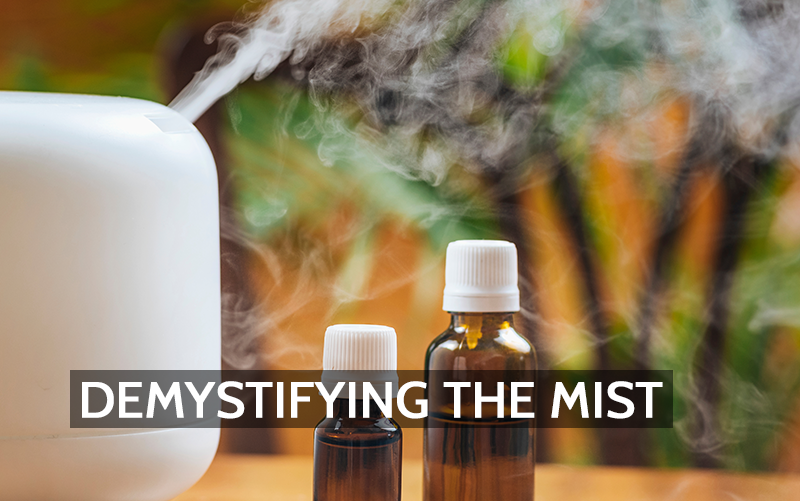Aromatherapy, the use of essential oils and natural fragrances, has gained popularity for its potential to reduce stress, improve sleep, and elevate mood. However, while home-based aromatherapy can add an inviting ambiance, it’s essential to understand how it impacts indoor air quality and the associated risks.
What Is Home-Based Aromatherapy?
Home-based aromatherapy typically involves diffusers, candles, or other methods that disperse essential oils or incense into the air. Essential oils, derived from plants, release their scent molecules when diffused or heated, allowing individuals to experience their therapeutic benefits. Common oils like lavender, eucalyptus, and peppermint are often used to help with relaxation, focus, or energy. Incense, another form of aromatherapy, produces aromatic smoke when burned, which can add a unique sensory experience to the home environment.
Potential Risks of Aromatherapy at Home
While the benefits of essential oils are widely discussed, their effect on indoor air quality and health is less frequently highlighted. Here are some risks to consider:
- Release of Volatile Organic Compounds (VOCs): Essential oils and incense both release VOCs, which can impact respiratory health. Prolonged exposure to high concentrations of these compounds may lead to throat irritation, headaches, and even exacerbated symptoms in individuals with asthma or COPD.
- Risk of Allergic Reactions: Oils like cinnamon and lemongrass are known to trigger skin sensitivities or allergic reactions when inhaled in high concentrations. Always ensure oils are adequately diluted and avoid using strong scents around those with respiratory conditions.
- Potential for Overuse: Many people diffuse oils continuously, unaware that prolonged exposure could lead to increased heart rates, respiratory irritation, and diminished indoor air quality. Balancing usage is key to maintaining a healthy environment.
- Impact on Pets and Children: Certain oils, like peppermint and tea tree, may not be suitable for young children or pets due to their potent effects. Animals, especially cats and dogs, have heightened sensitivity to airborne chemicals, so it’s important to research safe essential oils if you have pets in the home.
Long-Term Effects on Indoor Air Quality
Long-term use of aromatherapy can accumulate pollutants in the air. Essential oils and incense release fine particles that settle on surfaces and linger in the air, potentially impacting respiratory health over time. Homes with limited ventilation are especially at risk since these particles remain trapped indoors. Continuous exposure may also affect indoor humidity levels, further impacting air quality and making the environment less ideal for healthy breathing.
Safe Practices for Home-Based Aromatherapy
To enjoy the benefits of aromatherapy without compromising indoor air quality, consider these safety tips:
- Use a Timer: Avoid diffusing essential oils continuously. Limiting usage to 30–60 minutes at a time allows the scent to permeate without excessive buildup.
- Ensure Proper Ventilation: Open windows or use fans to disperse any residual particles or VOCs, especially if you’re using incense. This will help keep the air fresh and reduce the concentration of emitted compounds.
- Select Quality Oils: Opt for high-quality essential oils and avoid synthetic fragrances that may contain additional chemicals. Check labels for ingredients and sourcing information to ensure you’re using pure oils.
- Practice Dilution: Essential oils are highly concentrated, so it’s crucial to dilute them with a carrier oil when applied to the skin. For diffusing, follow manufacturer guidelines for water-to-oil ratios, as overloading can lead to overly strong fumes.
- Monitor Sensitive Individuals and Pets: If you have pets, children, or individuals with respiratory sensitivities, consider gentler oils or alternatives like unscented diffusers. Avoid using strong oils in common areas to ensure everyone’s comfort and safety.
Final Thoughts on Home Aromatherapy
Home-based aromatherapy offers an appealing way to enhance mood and create a comforting environment, but it’s important to balance enjoyment with safety. By being mindful of ventilation, oil quality, and proper usage, you can enjoy the benefits of essential oils without compromising indoor air quality. Aromatherapy can be a wonderful addition to the home when practiced responsibly and with awareness of its potential effects on health and air quality.


